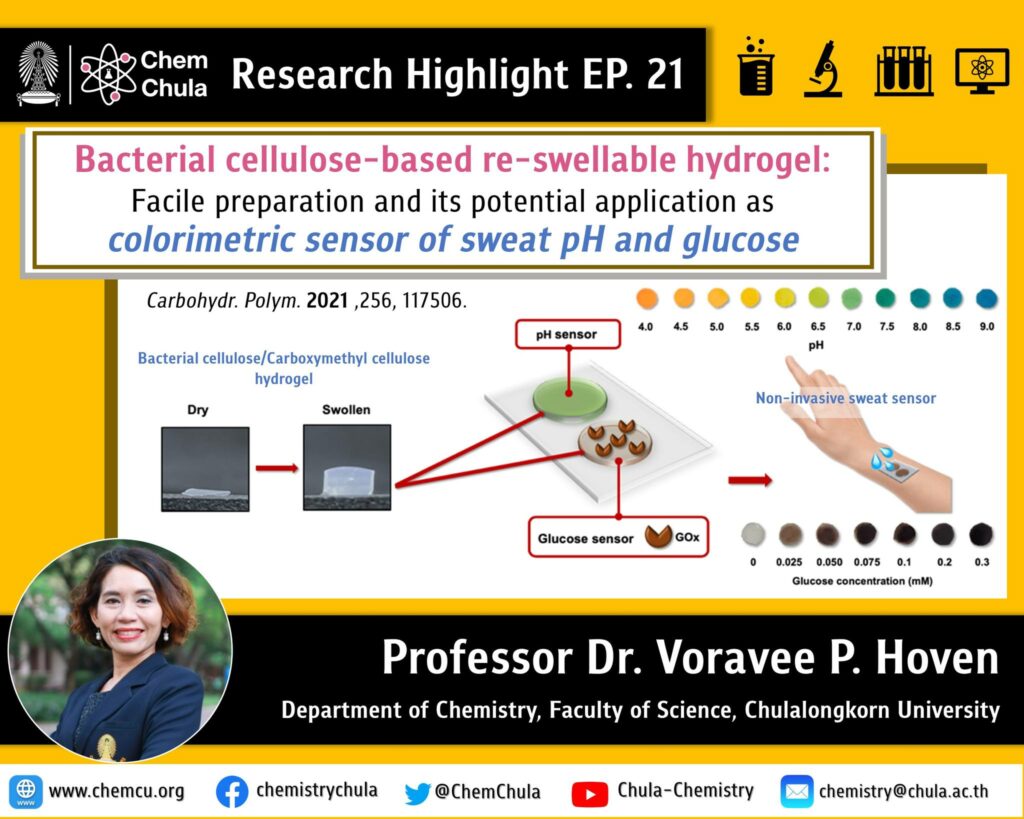Sweat is one of the interstitial biofluids containing minerals and clinical biomarkers, found in blood. Since sweat sampling can be done non-invasively and the levels of several biomarkers in sweat are well correlated with those in the blood, sweat is an interesting alternative biofluid for medical diagnostics. Glucose is one of the biomarkers that can be used for the diagnostics of various diseases. Sweat glucose analysis is a promising approach for diagnosis of diabetes. To fabricate highly specific glucose sensor, enzymatic reaction has been commonly utilized. Nevertheless, the enzyme-based sensors still have some limitation due to possible loss of enzymatic activity. Using biocompatible hydrogel for enzyme entrapment can protect enzyme from direct contact with environment and retains the enzyme activity. This research aims to develop composite hydrogels from two naturally derived materials namely bacterial cellulose (BC) or well-known as Nata de coco and carboxymethyl cellulose (CMC) using a simple and low-cost method. The developed BC/CMC hydrogel is biocompatible and re-swellable. Once incorporated with a universal pH indicator and glucose oxidase, the composite hydrogels can be applied as effective colorimetric pH or glucose sensor, respectively. These BC/CMC-based sensors could potentially be applied as non-invasive semi-quantitative sensors for on-skin health monitoring in the future.
- Voravee P.Hoven
- Tatiya Siripongpreda
- Benjawan Somchob
- Nadnudda Rodthongkum

